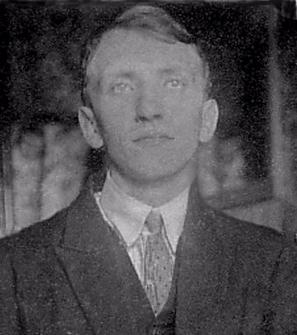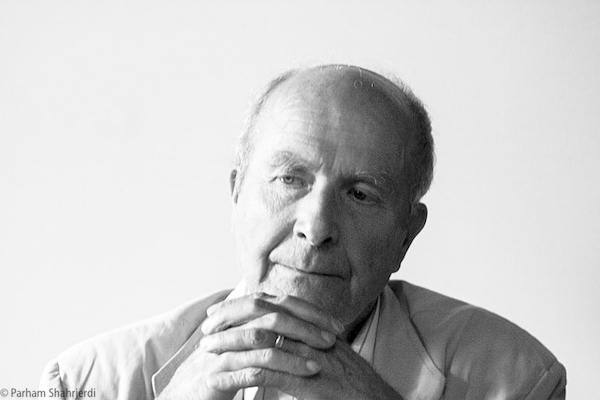
The Case of Pierre Madaule
One of the most important commentators on Maurice Blanchot's work was undoubtedly the writer Pierre Madaule (1927-2020). In 1973, he published an essay with Gallimard, A Serious Task?, a short book in which he offered his intimate reading of the author of Thomas the Obscure. Maurice Blanchot had read and approved it; it was he who gave the publisher the green light. Pierre Madaule, an unconditional admirer of Blanchot, corresponded with his idol by letters, and only by letters, as Blanchot had never agreed to meet him. The prestigious novelist and essayist of the NRF, as we know, never showed himself and lived in total seclusion.
Maurice Blanchot's Literary Debates
This correspondence was published, also by Gallimard, in 2012. Madaule was particularly attached to it, as a justification for his life. Jacques Derrida had said to him, in a sibylline way, when he had him read it, a few years earlier: "Well! You have obtained what you so desired!" Madaule, whom I already knew, had sent me a copy, with a very friendly dedication: "to my very dear Jacques-Émile, whom I would have so much liked to meet at Saint-Pabu, / and who so strongly made me reread with him the first lines of At the Right Time / with the friendship of great age of Pierre Madaule / in Paris, 8-XI-2012" Madaule's idea, when we began to exchange letters, was that we should progress together in the reading of At the Right Time. I believe that he was the only one who really worked on it, because I had no desire to compete with him on this theme.
A few months ago, at the very beginning of 2025, a book by Pierre Madaule was published posthumously by L’Harmattan, entitled Ma folie-Blanchot. I don’t know if I’ll ever have the opportunity to get hold of it and return to it carefully, but I’m taking this opportunity to mention it. For today, I would like to limit myself to mentioning the correspondence I maintained with him for several years, which was extensive, because Pierre loved writing letters. His writings were obviously interesting, devoted almost exclusively to his reading of Blanchot—it was apparently the only thing that interested him in life. I had the opportunity, I don’t remember the year, to visit Madaule and his wife at their home in Issy-les-Moulineaux, where he ended up inviting me. It was a strange dinner, frankly, appalling. He monologued all evening on his favorite subject, Blanchot, happy to find a silent and attentive guest.
He asked questions and answered, and I remember a heavy boredom, accentuated by this total indifference towards me. I took from that evening a disastrous impression of a fiasco. A few days later, the icing on the cake, I received a letter from him, in which he confided to me that I had disappointed him... He, too, had had the impression of a wasted meeting. To this was later added the emerging controversy over the pre-war Blanchot, his articles in the far-right and anti-Semitic newspapers of the time. "Was Blanchot anti-Semitic, in your opinion?" Pierre asked me with a certain rage, when I told him about this discovery. I then wrote an article on Michel Surya's remarkable essay, The Other Blanchot, and sent it to Madaule, adding that I was on Surya's side. Pierre Madaule didn't reply and took refuge in silence. I had doubtless very imprudently caused serious damage to the statue of the Commander.

What followed, moreover, more or less vindicated Blanchot, I believe. He certainly made a serious mistake for a period, but then redeemed himself: literature was the occasion for this redemption, as was his passion for Judaism. I regretted, however, that Pierre had not, for once, followed me in my thinking. He never listened to me. In short, he had broken with me definitively, me who certainly was not much in literature and who had lost all interest in his eyes by showing myself (I should have remained invisible). In truth, Madaule was in the habit of conversing with people much more important than myself: the short period of my correspondence with him was therefore something exceptional, of which I now retain a trace thanks only to some of my own letters that I recently found—but alas none of his, which disappeared when I moved. I would like the letters he addressed to me, which must have been recovered from his archives, to be published one day by Gallimard (and not by L'Harmattan). I no longer have them in my possession, but I remember that he photocopied everything he sent to his correspondents. I can therefore only offer excerpts from what I wrote to him here, a pale reflection of what he sent me, uncertain and insufficient responses, and for that, I sincerely apologize.
Jacques-Emile Miriel
November 19, 2008
Dear Pierre Madaule,
I was very pleased to receive your letter and the fascinating documents you enclosed. I was familiar with the two deleted paragraphs from The Death Warrant, having read them in the October 2003 issue of the Magazine littéraire devoted to Blanchot. They are unforgettable lines, and I will no doubt treasure this photocopy of the original edition. It was, in fact, ever since reading the Magazine littéraire that I had been thinking about reading your story, A Serious Task?
Thank you also for B. Noël's text. It shows that reading Blanchot can change a life. It also shows that the author of The Death Warrant was not just a purely abstract theorist, cold and distant. In my article, I perhaps shouldn't have written exactly that he was the “theorist of modernity”; he was, in any case, its thinker.
[…] The “physical shock caused by certain sentences” you speak of is, yes, undeniably present, to the point of discomfort, as B. Noël shows. The discomfort would therefore extend from the writer (and one must certainly imagine the hand that writes) to the reader. Is this how it happens? The passage from The Step Beyond, to which you draw my attention, however, would go in a more opaque direction, in my opinion: "The mark is to be lacking in the present and to make the present lacking. And the trace, being always traces, also does not refer to any initial presence that would still be present, as a remainder or vestige, where it has disappeared." »
[…] Sincerely, JEM
November 24, 2008
Dear Pierre Madaule,
Thank you for your letter. I read with some emotion the beautiful letter Blanchot sent you in December 1987. One senses better than ever in these few lines, which must have been invaluable to you, what a subtle and intelligent being Blanchot was. Regarding the theme of female incarnation, he immediately sees that you are providing personal insight; he doesn't deny it, but recounts (a very beautiful passage!) his dream, emphasizing only the word "chastely," somewhat ironically. He then says, above all: "I have nothing to add regarding the admittedly dangerous power of penetration that is achieved in these pages." Blanchot, the supreme critic, opens your text to his readers, justifies it, attests to it—to the extent that such a text requires it. But isn't the point of any text to enter into the intertext, into the plural speech of the world?
In my copy of At the Right Time, there are annotations dating from my first reading in 1993, I believe. Thus, I wrote the word "(carnal)" in parentheses opposite a passage on page 24: "Life was now a kind of bet taking shape around it with the memory of that brush—had it taken place?—with that stupefying sensation—would it persist?—which not only did not fade, but also asserted itself, in the wild manner of that which cannot have an end, etc." I underlined the words which, I noted, “describe love”; But it's a withdrawal rather than an attraction, a hollow way of expressing the solid (as in Thomas's monologue you mentioned). There's a note of systematic and devious preterition there. I would say the same thing about the paragraph on page 22, which begins: "Things apparently unraveled...“ I had written ”carnal act," but on the following page, “death” before "something that resembled herself and made her resemble the cold and tranquility of transparency." As with Bataille, necrophilia perhaps, but with a “living” aspect, how can that be explained?
[...] Sincerely, JEM










